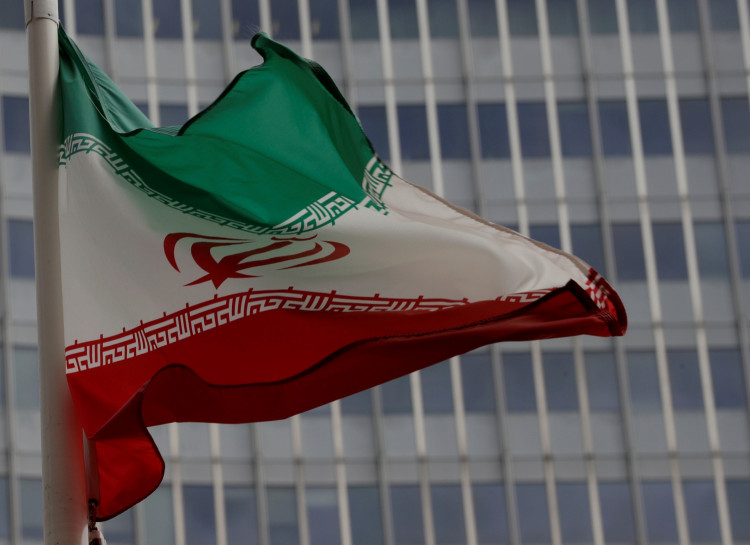In a move to ease tensions amidst stalled Iran nuclear deal negotiations, the U.S. and Iran have reached an agreement.
The U.S. government has signed a sanctions waiver allowing Iran to transfer $6 billion in frozen oil funds from South Korean banks to Qatar. In exchange, Iran will release five American prisoners. Additionally, the U.S. will release five Iranian detainees.
While this rare agreement between the U.S. and Iran seems to send positive signals for the resumption of nuclear talks, U.S. officials believe that the Biden administration's concessions aim to prevent Iran from becoming a focal point of attack in the 2024 elections. The prospects for a renewed nuclear deal remain slim.
$6 Billion Prisoner Swap
Multiple media outlets had previously reported that although the U.S. and Iran failed to agree on resuming the nuclear deal, the two countries had been negotiating prisoner releases and the unfreezing of Iranian funds for two years. Last month, with mediation from Qatar, Oman, and Switzerland, the U.S. and Iran finally reached an agreement on these issues.
Last week, U.S. Secretary of State Antony Blinken signed a sanctions waiver, allowing financial institutions in Germany, Ireland, Qatar, Switzerland, and South Korea to transfer Iran's $6 billion in oil funds, frozen in South Korean banks, to the Central Bank of Qatar. The waiver was only disclosed to Congress this Monday.
Before the U.S. unilaterally withdrew from the Iran nuclear deal in 2018 under President Trump, South Korea was one of Iran's oil buyers. Iran had accounts in South Korea's Industrial Bank of Korea and Woori Bank to collect payments for oil sales. After the U.S. reimposed sanctions on Iran in 2018, $7 billion of Iran's funds were frozen in South Korean banks. Due to the depreciation of the South Korean won against the U.S. dollar, this amount has now shrunk to $6 billion.
According to the waiver signed by Blinken, previously sanctioned entities like the National Iranian Oil Company and the Central Bank of Iran can transfer the $6 billion from South Korean banks to banks in Switzerland and Germany, and then to the Central Bank of Qatar. The waiver covers transfers starting from August 9.
However, the U.S. stipulates that Iran can only use the funds transferred to Qatar's Central Bank to purchase humanitarian goods, including food and medicine. The U.S. Treasury will monitor each transaction, and if Iran violates these conditions, the U.S. will freeze the funds again.
In exchange, Iran will release five detained American citizens. One of them, imprisoned since 2015 on espionage charges, has been the longest-held American in Iran. Last month, Iran moved the five detainees to a hotel in Tehran under house arrest.
Meanwhile, the U.S. will also release five detained Iranian citizens. Currently, at least 12 Iranian citizens are detained in the U.S. Sources say the prisoner release could begin as early as next week.
During an interview this week, Iranian President Ebrahim Raisi stated that the health of the five detained Americans is good. Regarding the unfrozen $6 billion, Raisi emphasized that the funds rightfully belong to the Iranian people and government, and Iran has the right to decide how to use them.
Slim Hopes for Nuclear Talks Restart
Several U.S. officials revealed that while discussing the prisoner exchange, the U.S. and Iran also discussed reaching an informal, unwritten agreement. The U.S. would waive some sanctions and stop intercepting foreign tankers transporting Iranian oil in exchange for Iran limiting its uranium enrichment activities and halting pro-Iranian armed attacks on U.S. forces in Syria.
A report this month from the International Atomic Energy Agency showed that Iran has recently slowed its production of 60% enriched uranium.
Under the nuclear deal, Iran can only produce uranium enriched to 3.67%. After the U.S. withdrew from the deal, Iran gradually suspended its commitments and began enriching uranium to 60% in 2021. Weapon-grade uranium is enriched to 90%.
Iran's slowdown in producing 60% enriched uranium is seen as a sign of its intention to ease tensions with the U.S.
However, U.S. and European officials emphasize that the ongoing negotiations between the U.S. and Iran are not aimed at returning to the nuclear deal. Some officials believe that everyone knows the nuclear deal "won't come back." With 2024 being an election year in the U.S., the Republican Party strongly opposes the nuclear deal. Trump currently leads significantly in Republican polls.
Republicans have already protested the Biden administration's $6 billion prisoner swap deal with Iran, condemning the administration for paying ransom to a state that supports terrorism.
To further complicate Biden's path to re-election, House Speaker and Republican Kevin McCarthy announced on Tuesday that the House has launched an impeachment investigation into Biden. Trump was impeached twice during his presidency, but no U.S. president has ever been removed from office due to impeachment.
Former U.S. officials from the Trump era believe that the Biden administration's current concessions to Iran aim to keep the situation calm before next year's elections and prevent Iran from becoming ammunition to attack Biden.
A researcher from the Washington Institute for Near East Policy believes that Iran's slowdown in producing 60% enriched uranium and the U.S.-Iran prisoner swap lay the groundwork for further communication between the two countries on the nuclear issue. However, the chances of the two countries agreeing to return to the nuclear deal before the U.S. presidential election next year are very slim.
While maintaining communication with Iran, the U.S. continues to flex its muscles in the Persian Gulf. The Pentagon is considering deploying U.S. troops to commercial ships in the Strait of Hormuz to prevent them from being seized by Iran. The U.S. military has also increased its presence in the Persian Gulf, deploying amphibious assault ships, landing ships, F-35s, and F-16 fighter jets.





